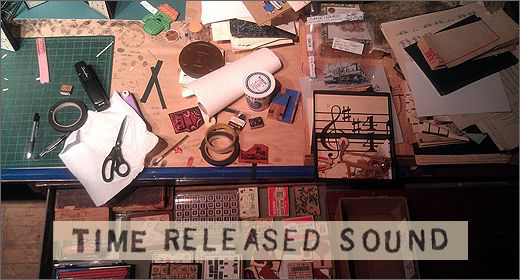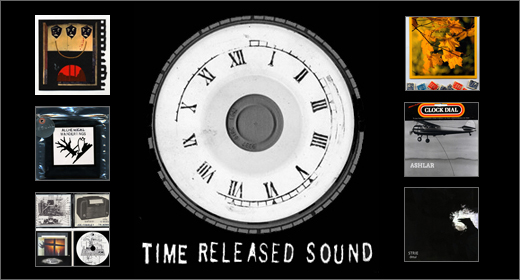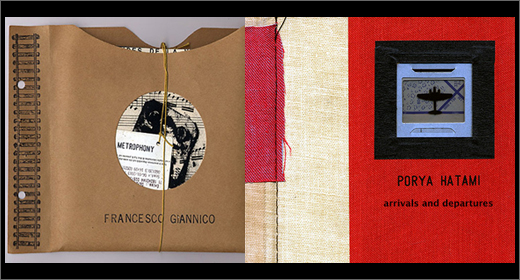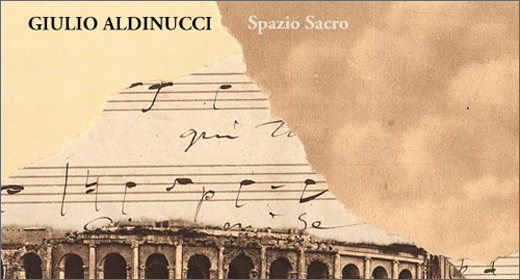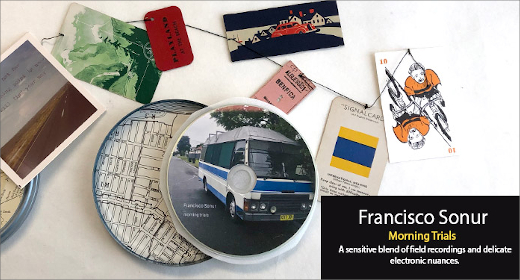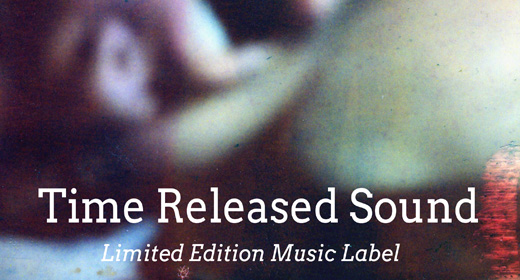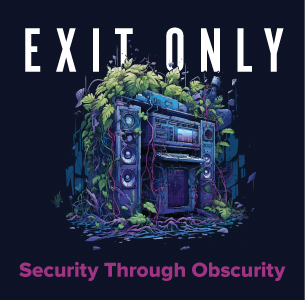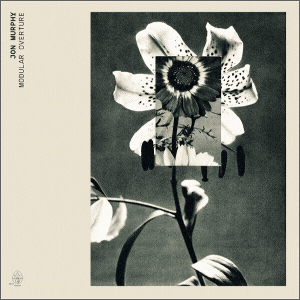A trip back in Time Released Sound finds Colin Herrick‘s enterprise, previously igloo-viewed as ‘nothing so humdrum as a label, more of an artisan’s workshop, producing lovingly crafted over-the-top artefacts housing ultra-limited homemade discs—releases ranging from precious to playful…,’ continuing to extend its catalogue of esoterically accessorized packages. They say handsome is as handsome does, so let’s hear how these seven do—The Inventors of Aircraft, Yoshito Murakami, The Ashes of Piemonte, Lyndsie Alguire, Benjamin Finger, Christophe Bailleau & Julien Demoulin, and Monochromie.
:: :: :: :: :: :: ::
These days, it seems, we can’t escape the journey. From post-feat interview blather to pseudo-spiritual rites of passage cant, it’s the now cliché for transformative experience. We can cut The Inventors of Aircraft some slack, though, the journey invoked in Where The Light Stops no knee-jerk flim flam—more programme. London-based operator Phil Tomsett taps into ‘the atmospheres of old abandoned train stations in remote parts of England’ in ‘part reflection on the decline of the British Rail Network since privatization …part imaginative speculation of what stories these now forgotten places might tell.’ Titles—“Iron Pathways,” “A Route Through the Downs,” and “Strings and Pistons”—further anchor narrative, fuelled by field recording infusions, to evoke a sepia-toned portrait of train travel; the dereliction of shut down stations and their attendant relics take on romantic freight in languorous happy-sad harmonics. Quiet static-soaked daydream-scenes for those tired of late modernity and the dazed gauze of gazed-at days. A few steam emissions in “Never Forgotten (For Tom)” and some engine noise in “Strings and Pistons” index faraway trains passing by, though TIOA‘s lyricism is a programme you don’t need to get with to be in thrall to. A finely finished feel is evident from the warbly plonk of “The One Hundred Year Piano” threading through crystalline electronics, swelling symphonically, to the elegiac title track, and hymnal “And Now We Leave Our Seats,” in which fellow-travelers of such as SotL and Jasper TX should find themselves comfy. Curator Herrick matches Tomsett with signature packaging panache.
:: :: :: :: :: :: ::
Next up is Mu To Eien, ambient-drone artist Yoshito Murakami’s paean to a Japan in transition, a country whose lightness and delicacy of aspect have proven prone to shadows and fog. For all that Murakami thanks his ancestors, pledging allegiance to a precious construct of Japanese culture, he seems to mirror an uneasy relationship with the industrial through a gradual destabilizing of the initial tone set—of the rural and remote, of open country joy; a blitheness slowly encroached on by murmur and thrum, seeming to signal a potentially deleterious trajectory. “Jomon sea” sprays out a trebly spume of immersive invitation attended by ambiguous sub-surface intimations. A similar duality is palpable on “Light of Shadow,” ambience shaded by slow piano ascents. Some scenes seem idyllic, ghosts of Terry Riley going through “Rothko’s Gate” to find Mountains on the way, “Mizuno Shimidashi” and “Quiet Summer, White Mountain” all sweetness and light—water running relaxation, technology-remote, but electronic noise increasingly attends nature’s signal, as if unsound in the surroundings, viral in the environs. Needless to say, Herrick’s deluxe model is a Nippophile’s wet dream.
:: :: :: :: :: :: ::
Out of respective bases in the UK and Italy The Ashes Of Piemonte, TRS veteran Wil Bolton (cf. Quarry Bank and Kollane) and recently reanimated electronica old-timer Lee Norris, have wrought a brooding tract of haunting minimalist drift in Winter’s Fire. Spatial organic synth-y electronics, mood-altering field recordings and voice samples soundtrack their somewhat dark materials—homage to the medieval Massacre Of Piedmonte (cf. Milton’s poem). TRS’s SF neighbours at cult experimental outlet Aquarius have ID-ed a “Time Released Sound SOUND“—‘an ethereal, ephemeral ambience, neo-classical dronescapery that’s softly psychedelic, hushed and mysterious, almost new agey at times, an electronic flecked dreaminess that blends organic and machine generated sounds into something lush and lovely.’ Winter’s Fire takes this TRS sound, and stains it inkily with a murky mezzotint, low rumble and shimmer flecked with melodic glints. Swathes of synth haze crawl over chordal thrum sprayed with a mesmeric patina of evanescent voice-spectres. As is TRS’s wont, it comes in two versions, one for a pauper, the other fit for a collector king.
:: :: :: :: :: :: ::
Slipping in here is a dinky ep from Canadian artiste, Lyndsie Alguire, who has taken her debut Suspended In Light‘s prissy pianistics further out on Clair Obscur. Working around conventional song structures, she lets effects seep through, has disrupts and trip-ups upset her pieces’ stability. On “I Was Dreaming of You” small fragments of tape-laden FX impart a sense of unease, treated tones fizz in insectoid glitch flurries over drone vapours. “You Used To Look Happy” adopts an ostensibly more conventional approach, vocals fluting around theme, yet strikes oddly suspended, interstitial. On “You Used To Look Happy” piano’s propriety is compromised by detuned washes. Alguire goes knowing post-Goth on “The Twin Stones,” twinkling electronics and pellucid piano rubbing up against neo-hiphop drum machinery, gauzey beat-driven shoegaze, ethereal vox and plangent piano, like some 4AD Bat for Lashes or Projekt Tori Amos. “All Possible Stories” closes in swathes of sampled voices, languid piano etiolation, teeming fields. Frothily female.
:: :: :: :: :: :: ::
Listen To My Nerves Hum is a somewhat sombre assemblage of sonic snapshots setting aptly named Oslo ivory-tinkler Benjamin Finger’s piano recursions against more interruptive elements. Filmic (cf. Nyman, Glass) deployments of piano, field recordings, and vocal samples, often with a distinct dissonance. Like previous releases here, a sense of unsettled repose is the keynote—melancholy with a certain quietude. Finger finds an angle with a plethora of field fragments enfolded within his vexations, looping into your lobe a bright eerie tinkle, balancing serene and doleful. Finger’s tweaks are just enough to pique—a note’s slippage, an accent’s varation. On “Road to Salema” a spectral vox-wisp appears a moment, then vanishes. On “Año Nuevo Acid Crackers” the piano is harried by footsteps that morph into fireworks and crowd noise. “Sevilla on Tape” hitches a harsh jangling motif to kids’ voices. While this dissonance and displacement bear intimations of fragility and damage, they offset the piano’s parlour prissiness with irruptions that serve also to activate the listening space. The ultra deluxe version delights in its rococo—a skeletal bird mobile of antique piano parts that lives in a massive collaged chocolate box!
:: :: :: :: :: :: ::
Next up Christophe Bailleau and Julien Demoulin forsake TRS’s signature melancholy for some giddy future-basing on Outshining Memories. The two conjoin liquid expanses of Kosmische synthscape and psychedelic space with Nu-age nuage and ambience. Warm and organic here, dark and gruzzy there, their layered light-seeking shadow-plays strike sometimes 12k-like—Shuttle358, to be specific—that sense of faux-nature glimpsed through the digital veil. “Fickle Fame” sets the tone with a Reich-ian turn. Space becomes the place as the sound-field expands with tender timbres. Guitar streams on “Le Jumeau,” while light background strum, odd scrapes and swipes, bags of bloop and bass distinguish “Faceless, Careless.” Things turn a touch crepuscular on “How We Feel,” which has about its melodic delicacy a certain shoegaze-y timbrality, sustained through “You Won’t Be the Last” and “The Past Better Than It Was.” The latter’s Boards-y warbly synth-wooze with late-coming guitar curlicues makes for a satisfying lyrical closure to a most affecting album.
:: :: :: :: :: :: ::
Last TRS issue is a set of avowedly emotive pianism from Marseillaise, Monochromie, known to significant others as Wilson Trouvé (no relation to objet trouvé). He apparently began work on a number of pieces round the end of 2012, some appearing on the recent Enlighten Yourself While You Sleep, Colors In The Dark follows hot, or rather warm, and deeply fuzzy, on its heels, with the rest, true colors, in keeping with the Monochromie moniker, showing largely several shades of grey, if not full-on black dogs—melancholy études couched in a doleful ivory of echo-laden minimalist keystrokes and steel-wrung string-melt. Opening gambit of “Brightness” followed by “Dust and Breath” sets a tone of twilight cadence with a freight of weight-of-the-world, reference points varying—from Chopin, Schubert, and Satie to Sigur Rós, GYBE! and Eno—in a blend of modern classical, post-rock, and ambient drone that trades on a certain generic lyricism while retaining a certain internality.
All releases are available on Time Released Sound.
[ TRS027 | TRS028 | TRS 029 | TRS030 | TRS031 | TRS032 | TRS033 ]






